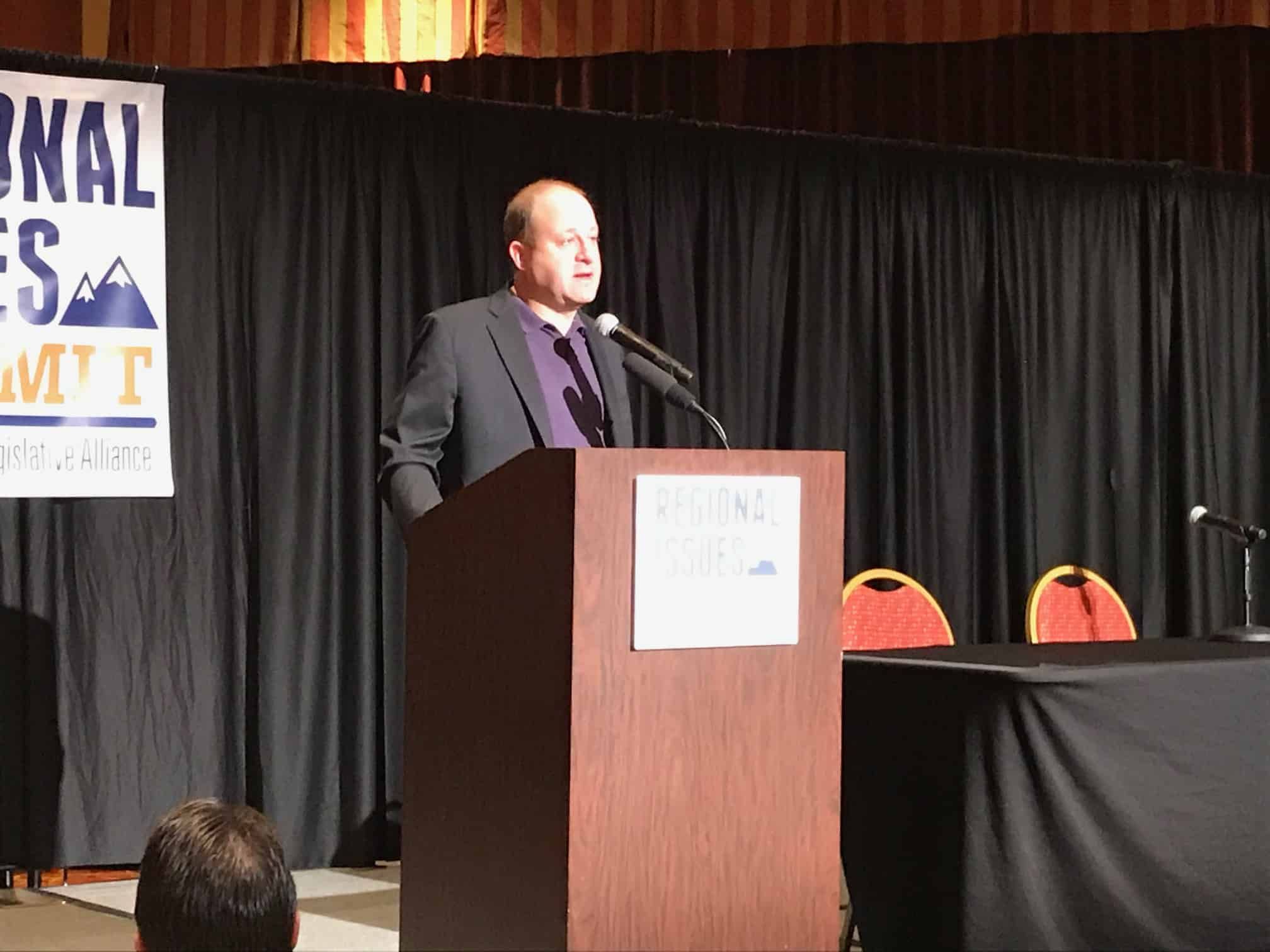Health care public option debated at NoCo forum

LOVELAND — Colorado legislators will see a public option for health care when the session ramps up in January, but it would be a mistake to call the plan a single-payer, Medicare-for-all plan.
Instead, it’s a plan that is being written after 42 stakeholder meetings involving hospitals, medical providers, insurers and business groups and is described by the executive director of the Colorado Health Care Policy and Financing division of state government as “a plan built by Coloradans, for Coloradans.”
Still, opponents were circling in the crowd at the annual Regional Issues Summit produced by the Northern Colorado Legislative Alliance held Tuesday in Loveland. The Alliance is a group jointly formed by the chambers of commerce in Fort Collins, Greeley and Loveland along with the two economic development organizations in the region, OneNoCo and Upstate Colorado Economic Development.
“The public option falls into the category of bad policy,” said Kristin Strohm, president and CEO of the Common Sense Policy Roundtable. “It’s guided by good intentions, but it is not,” she said.
“What’s good health care if you don’t have access,” she asked. “The public option will wreck the health insurance industry,” she said.
Her comments at the Tuesday Regional Issues Summit come just four days after the preliminary public option plan was disclosed.
Kim Bimestefer, the state official leading the charge for health care reform in Colorado — a health-care professional who spent much of her career in the health insurance industry with Cigna — called the public option that Colorado is considering “a moderate alternative to drive down costs over a number of years.”
“Every single day, I come to work to run the largest agency in the state [she’s in charge of Medicaid, which takes up a third of the state budget]. If we can control Medicaid costs, we can do that for all of Colorado,” she said.
She said that businesses for 10 years in a row have rated escalating health-care costs as the number one issue. “We could have said, ‘Medicaid [single-payer], take over the world. We didn’t.”
Moving at a rapid pace, she outlined how collaborative efforts among hospitals, insurers, providers, and others are needed to reduce the cost impact on consumers and businesses.
“Carriers, step up and do your job,” she admonished health insurance providers. Hospitals, she said, account for 40 percent of health-care costs and “we’re out of line with the rest of the country. We need to bring down costs thoughtfully over time. This is not an overreach of state government,” she said. “We need to protect the independence of hospitals,” she said of independent, small hospitals around the state. “But if you’re in a big system and are making big profits, that’s overcharging our communities. We need to find a balance in what we’re charging employers and communities.”
She specifically cited UCHealth and Banner in her presentation, noting that she had met earlier that day with UCHealth executives and that Margo Karsten, president and CEO of Banner in Northern Colorado, was on the stage with her. She said all of them have committed to lowering prices.
She talked about strategies to lower drug costs, which account for about 20 percent of health-care costs. She said recent mergers of drug and insurance companies have resulted in savings for insurers, but the savings are not passed through to the consumer. Instead, this business has become a profit center for insurance companies.
Gov. Jared Polis, who also spoke Tuesday, noted that Colorado is working to be able to import drugs from Canada, where often the same name-brand drugs can be purchased for significantly less than what they cost in the United States.
Bob Smith, executive director of the Colorado Business Group on Health, said his organization supports what is happening. “This is an employer-led, market-based solution.”
“We waste more on health care than we spend on primary and secondary education in this country. It distorts the market and incentivizes nonprofit hospitals to invest in resources we don’t need,” he said.
Bimestefer encouraged hospitals to reduce administrative costs and to “thoughtfully and appropriately bring down costs.”
Karsten said she’s on board to help with cost reductions, but warned that cost reductions could result in reductions in staffing. “We will cost shift and it will affect our employees,” she said.
She said hospitals can’t be expected to bear the burden alone. “If I cut administrative costs, I’m not hearing that you’re [employers] paying less for insurance,” she said.
Amanda Massey, executive director of the Colorado Association of Health Plans, said her organization supports the goals of the effort to reduce costs, but “we have reservations about the final report.”
“My members feel that mandating us to participate doesn’t feel like collaboration,” she said.
The state passed “more than 30 health-care bills last year, and we’re still trying to figure out those.”
Karsten said, “we need to go slow to go fast,” as she advocated for deliberate action over time.
Bimestefer said the work needs to be “thoughtful and collaborative, but we need to move ahead. We should not ask businesses to wait 15 years for results.”
LOVELAND — Colorado legislators will see a public option for health care when the session ramps up in January, but it would be a mistake to call the plan a single-payer, Medicare-for-all plan.
Instead, it’s a plan that is being written after 42 stakeholder meetings involving hospitals, medical providers, insurers and business groups and is described by the executive director of the Colorado Health Care Policy and Financing division of state government as “a plan built by Coloradans, for Coloradans.”
Still, opponents were circling in the crowd at the annual Regional Issues Summit produced by the…
THIS ARTICLE IS FOR SUBSCRIBERS ONLY
Continue reading for less than $3 per week!
Get a month of award-winning local business news, trends and insights
Access award-winning content today!





